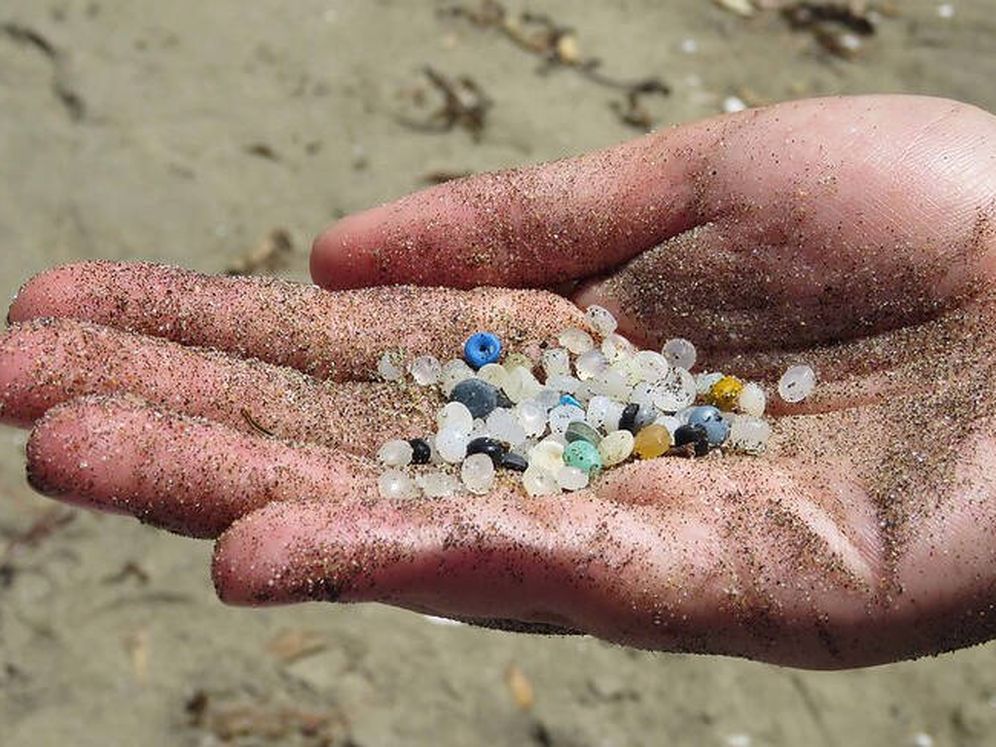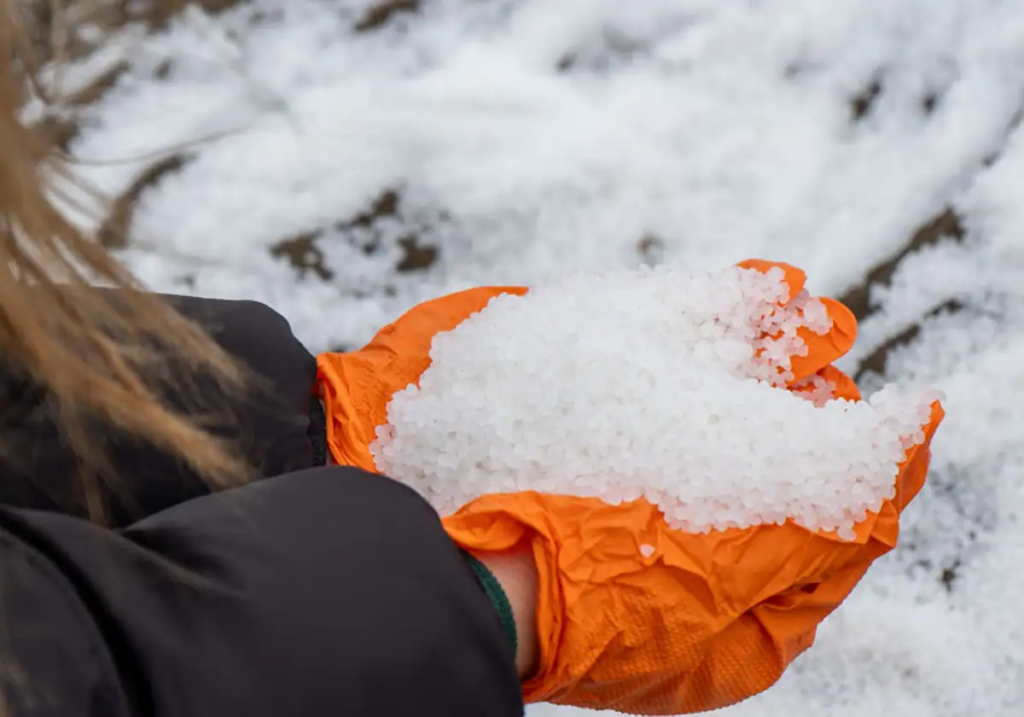What potions have I drunk of Siren tears wrote Shakespeare in his sonnet 119. Who would have thought that centuries later, in a gesture of poetic injustice, the seas would become the corrupted potion.
Pellets, also known as plastic pellets or nurdles, are a major issue: “losses of plastic pellets to the environment are the third largest source of unintentional release of microplastics,” says the European Commission’s new proposal to reduce microplastic pollution. Beyond pellets – a particularly complex waste to remove from coastlines as they are balls of about 5 mm in diameter – the European report mentions other sources of pollution, from tyres to geotextiles.
“Eight million tonnes of rubbish a year find their way into the seas and oceans (equivalent to the weight of 800 Eiffel Towers, to cover 34 times the island of Manhattan or the weight of 14,285 Airbus A380 aircraft)”. These are the opening lines of a Greenpeace report on plastics in the oceans.
The environmental catastrophe that occurred on 8 December with the dumping of pellets 80 kilometres off the Portuguese coast once again highlights the problems with our seas. The container ship Toconao lost several containers. One of them was carrying 1050 bags of pellets, a total of more than 26 tonnes of microplastics.
Volunteers call for the professionalisation of the cleaning industry
“We found out about the first sacks of pellets that arrived on 13 December in the municipality of Ribeira”, explains Maria Sieira. She is one of the founders of Noia Limpa, the small organisation that has made the media spotlight by publicising the event with the support of Galician influencers. “A few days later, a colleague who is active in the surfing world told us that large quantities of little white balls had been seen on Das Furnas beach. When a colleague approached us and saw the situation, everything was full of plastic from a sack that had broken against the rocks, so we started to report it on social media”.
With the Galician regional elections on the horizon and the collective trauma of a never again, the co-founder of Noia Limpa calls for effective action: “we are not organised, we are self-organised, which is a complexity. We would have to find a system to coordinate the volunteers, and, for example, it would not have happened to us like today, when we removed 200 grams of pellets from one beach and perhaps we would have been more useful on another”. This system of organisation goes through the authorities, and the volunteers’ demand is in line with the “professionalisation of the clean-up”, explains Sieira: “the clean-ups must also be respectful of the environment, it is a complicated task, because bringing in heavy machinery can damage the beaches, it is very manual and takes more time”, he says of the collection mechanisms.
“In Galicia we are right in front of a very important maritime route for container transport, many of the containers that go to northern Europe pass through here. We could say that we are a little bit at the mercy of what might happen”, comments María. Precisely because of this, she believes that measures such as the European Commission’s proposal are necessary to ensure that microplastics travel in a safer way and to avoid exposure to such materials falling from the deck into the oceans.

Scattered pellets in the face of administrative inaction
According to a source from the Portuguese Ministry of Economy and the Sea, the Spanish authorities were informed on 8 December that the vessel Toconao had lost part of its cargo. The Government Delegation in Galicia states in a communiqué that on 13 December the first arrivals of pellets on the coasts took place and that “the first alert received by the Government came through the Xunta, specifically from the 112 services in Galicia”.
The environmental catastrophe has become a weapon of war in the midst of the regional election campaign. The Xunta de Galicia, presided over by Alfonso Rueda of the Partido Popular, points out that “the state government delayed official notification to the Xunta”, thus contradicting the version of the Government Delegation and affirming that this notification did not take place until the third of January. The central government maintains that the Xunta was notified on 20 December, and that, in order to receive support from state resources for coastal clean-up, the regional authorities must raise the alert level to N2 and expressly request it, an alert that the Xunta did not raise until 9 January – even Asturias, having been affected, but without being the epicentre, activated it earlier. The lack of effective reaction has led to the pellets being dispersed, “many will no longer even be in the bag, so we will have to remove them loose on land and if we have to spend months, then spend months,” says the member of Noia Limpa.
Prestige, a spectre with its own name
The oil spill resurrects a ghost that inhabits the Galician coasts and the imagination of the population. In November 2002, one of the biggest ecocides ever recorded took place: 77,000 tonnes of oil leaked from the wreck of the Prestige. More than twenty years later, despite a Supreme Court ruling that ordered compensation of more than 1.5 billion euros, the insurer and the ship’s company are still appealing in a dispute that seems to go on forever. As the dark spectres of the Prestige return, the spirit of “Nunca Máis” [Never Again] is awakening. Two decades ago, more than 65,000 volunteers were the workforce that turned out to remove the tar left behind by the oil tanker. The nefarious and controversial management by the administration remains in our memories today: “from the Prestige they come out like little strands of plasticine”, said the then spokesman of the Aznar government, Mariano Rajoy.
Civil society mobilised: fishermen’s guilds, shellfish gatherers, environmental organisations, trade unions, political movements and a whole host of grassroots organisations met at the headquarters of the Bloque Nacionalista Gallego in Santiago and agreed to hold a demonstration which, over time, would become a butterfly effect of collective action. Thus, at the beginning of the century, a pioneering and highly symbolic social movement would take shape for what we know today as climate justice.
With the weight of the legal battle for the collection of compensation for the Prestige case still open, the pressure to ensure that the Toconao case is not exempted from responsibility is tightening and suffocating. For the moment, to alleviate the crisis in the short term, the shipping company is assuming some of the costs of the clean-up: “they are hiring local people, many sailors, since all this also causes problems such as the fact that the fishermen’s associations cannot go out to sea, including shellfish gatherers”. The Environmental Prosecutor’s Office has opened proceedings in the case.
Social mobilisation: collective conscience returns to the streets
What were once “plasticine threads” are now “little balls”: the Intercentre Committee of the Galician Radio and Television Corporation (CRTVG) and the collective “Defende a Galega” have protested against the “electoral interests of Alfonso Rueda’s PP to cover up the inaction and passivity of the Xunta” and how it intercedes in the information of the public corporation to, at the beginning of the event, minimise the issue. Living an almost cyclical story, once again in Santiago a demonstration was called under the slogan “in defence of our sea”, supported by about 150 groups from different sectors and where it was heard, again, never again, never again.
“I feel proud that people have mobilised, organised, and that we are collecting it together. I feel very proud as a Galician”, says the environmental activist. “We are receiving support beyond Galicia, people who come from abroad to collaborate or who send resources to help us”, she adds, highlighting the importance of the solidarity and support they are receiving. The social pressure that is being exerted to take action, to establish public policies and to assume responsibilities are the basis for managing the seas flooded with mermaids’ tears.


